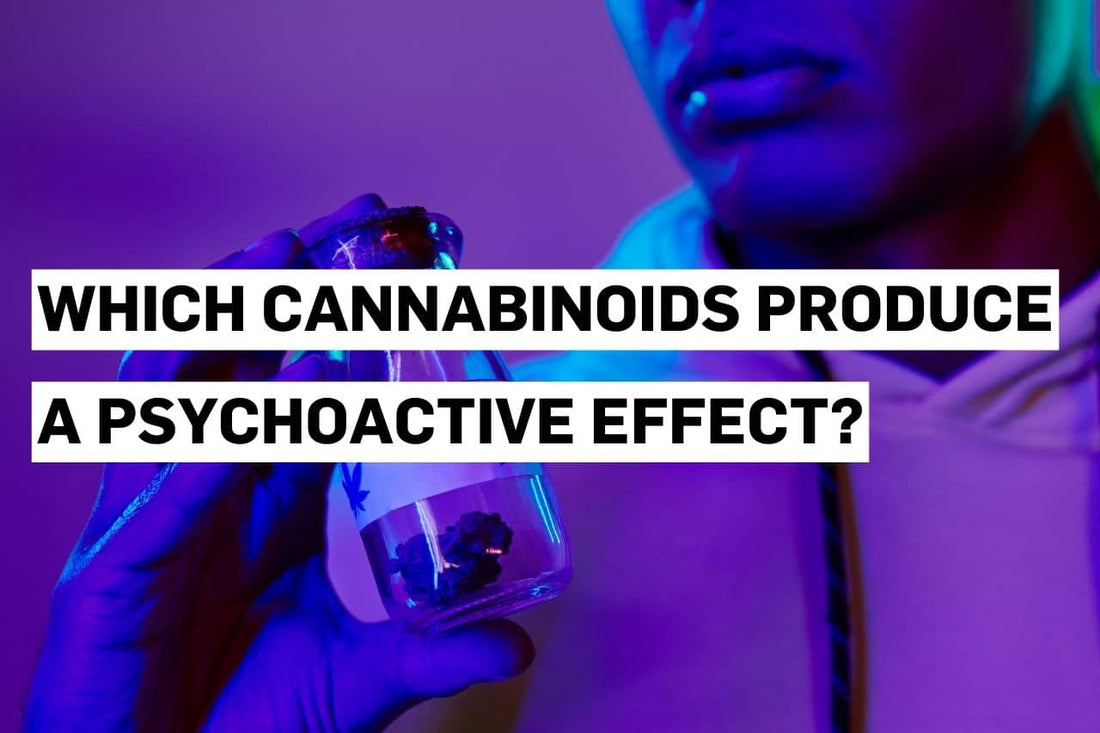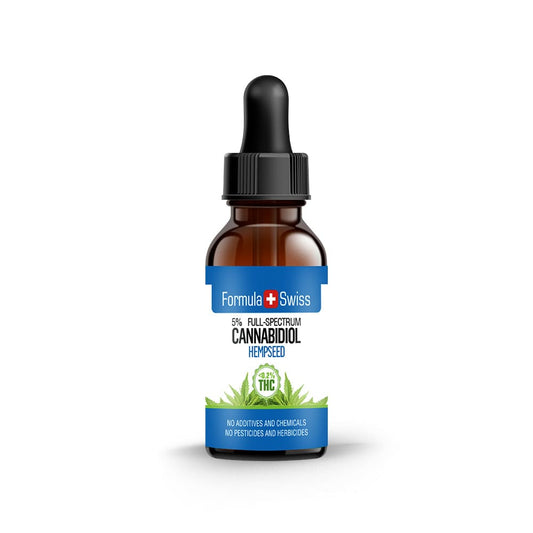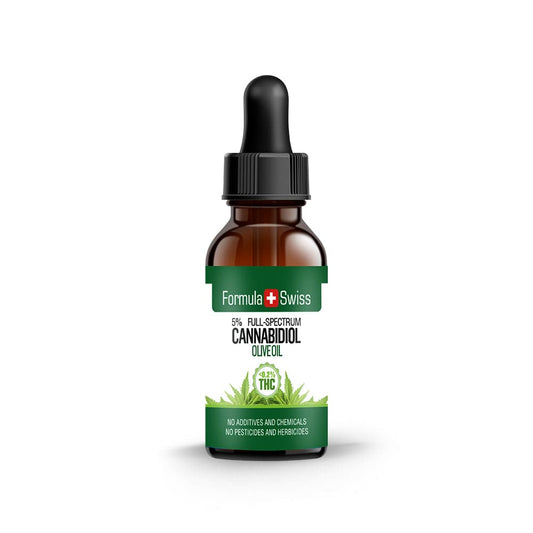The psychoactive effect of cannabis is primarily attributed to specific cannabinoids present in the plant. These cannabinoids interact with the body's endocannabinoid system, producing various effects on mood, perception, and cognition.
Key Takeaways:
- Delta-9-tetrahydrocannabinol (THC) is the main psychoactive cannabinoid found in cannabis.
- Cannabidiol (CBD) has an anti-psychoactive effect, modulating the psychoactive effects of THC.
- Cannabinol (CBN) produces a gentle and sedating effect.
- Tetrahydrocannabivarin (THCV) can produce its own unique psychoactive effect by interacting with the CB1 receptor.
- Other cannabinoids, such as cannabigerol (CBG) and cannabichromene (CBC), are believed to be non-psychoactive.
This article is provided for informational purposes only and does not relate to any of the products available in our webshop. For more information, please see our full disclaimer.
Understanding the role of these cannabinoids is essential for comprehending the psychoactive effects of cannabis and its potential therapeutic applications.

Delta-9-tetrahydrocannabinol (THC)
Delta-9-tetrahydrocannabinol, commonly known as THC, is the primary psychoactive cannabinoid found in cannabis. It is responsible for the euphoric and intoxicating effects often associated with marijuana use.
THC works by binding to the CB1 receptors in the brain, altering neurotransmitter release and affecting various cognitive and physiological processes.
THC is known to induce feelings of relaxation, joy, and altered perception of time. It can also cause short-term memory impairment, coordination difficulties, and increased appetite, commonly referred to as "the munchies." Additionally, THC has been found to have potential therapeutic benefits, including pain relief and antiemetic properties.
It's important to note that THC levels can vary significantly between different strains of cannabis and even within the same strain, depending on factors such as cultivation methods and plant maturity. This variability in THC content contributes to the range of psychoactive effects experienced by individuals using cannabis.

THC Effect on the Body
When THC enters the body, it is rapidly absorbed into the bloodstream and distributed throughout various organs, including the brain. Once in the brain, THC binds to CB1 receptors, primarily found in areas responsible for mood, memory, and perception. This interaction leads to the psychoactive effects associated with THC use.
THC's psychoactive effects can vary depending on the dose consumed, the method of consumption (smoking, vaping, edibles), and individual factors such as tolerance and metabolism. While low doses of THC may induce a mild euphoria and relaxation, higher doses can result in more intense psychoactive effects, including altered sensory perception and hallucinations.
| THC | Primary psychoactive cannabinoid |
|---|---|
| Effects | Euphoria, relaxation, altered perception, memory impairment, increased appetite |
| Method of Consumption | Smoking, vaping, edibles, etc. |
| Therapeutic Benefits | Pain relief, antiemetic properties |
Overall, THC plays a crucial role in the psychoactive effects of cannabis. However, it's important to note that cannabis contains various other cannabinoids, each with its own unique properties and potential effects on the body. Understanding the different cannabinoids and their effects can help individuals make informed decisions about their cannabis use.
Cannabidiol (CBD) and its anti-psychoactive effect
Cannabidiol, also referred to as CBD, is believed to have an anti-psychoactive effect that can help mitigate the psychoactive effects of THC. While THC is known for its ability to produce a euphoric high, CBD works in the opposite direction by binding to different receptors in the brain. This interaction can potentially reduce the intensity of THC's psychoactive properties, providing a more balanced and controlled experience.
One of the primary mechanisms through which CBD exerts its anti-psychoactive effect is by blocking the activation of the CB1 receptor, which is responsible for the psychoactive effects of THC. By doing so, CBD can lessen the intensity of THC's high, making it a popular choice for individuals seeking the therapeutic benefits of cannabis without the accompanying psychoactive effects.
Furthermore, CBD has been found to modulate the endocannabinoid system, which plays a crucial role in regulating various physiological processes. This modulation can help restore balance to the body and mind, potentially alleviating symptoms associated with anxiety, stress, and other mental health conditions.
It is important to note that while CBD can help mitigate the psychoactive effects of THC, it does not completely eliminate them. The specific effects of CBD may vary depending on factors such as dosage, individual biology, and the ratio of CBD to THC in a particular cannabis product. Therefore, it is always recommended to start with a low dosage and consult with a healthcare professional before incorporating CBD into your wellness routine.

- Cannabidiol (CBD) is believed to have an anti-psychoactive effect.
- CBD can help mitigate the psychoactive effects of THC.
- It works by blocking the activation of the CB1 receptor.
- CBD has a modulating effect on the endocannabinoid system.
- Individual factors can affect the specific effects of CBD.
- Consult with a healthcare professional before using CBD.
| Cannabinoid | Psychoactive Effect |
|---|---|
| Delta-9-tetrahydrocannabinol (THC) | Produces a euphoric high |
| Cannabidiol (CBD) | Mitigates the psychoactive effects of THC |
| Cannabinol (CBN) | Produces a gentle and sedating effect |
| Tetrahydrocannabivarin (THCV) | Produces its own distinct psychoactive effect |
Cannabinol (CBN) and its sedating effect
Cannabinol, known as CBN, is a cannabinoid that produces a calming and sedating effect, adding to the overall psychoactive experience. While THC is the main psychoactive cannabinoid found in cannabis, CBN plays a significant role in enhancing the plant's relaxing properties. It is formed when THC is exposed to air and undergoes oxidation, resulting in a compound that can induce feelings of tranquility and sleepiness.
CBN is particularly valued for its potential to alleviate insomnia and promote a restful night's sleep. It is believed to interact with the body's endocannabinoid system, which regulates various functions, including sleep-wake cycles. By binding to specific receptors, CBN may help promote a deeper and more restorative sleep.
To fully understand the sedating effect of CBN, it is important to consider its interaction with other cannabinoids. CBD, for example, has been found to have an anti-psychoactive effect, mitigating the psychoactive properties of THC. When combined with CBN, CBD may further enhance the calming and relaxing effects, leading to a more gentle and balanced psychoactive experience.

| Cannabinoid | Psychoactive Effect |
|---|---|
| Delta-9-tetrahydrocannabinol (THC) | Produces the main psychoactive effect associated with cannabis |
| Cannabidiol (CBD) | Believed to have an anti-psychoactive effect, moderating THC's psychoactive effects |
| Cannabinol (CBN) | Produces a calming and sedating effect, enhancing the overall psychoactive experience |
| Tetrahydrocannabivarin (THCV) | Can produce its own distinct psychoactive effect by interacting with the CB1 receptor |
In addition to CBN, other cannabinoids such as cannabigerol (CBG) and cannabichromene (CBC) are believed to be non-psychoactive. While these cannabinoids may not contribute to the psychoactive experience, they play crucial roles in the overall therapeutic benefits of cannabis, including anti-inflammatory and neuroprotective properties.
In summary
- CBN, a cannabinoid found in cannabis, produces a calming and sedating effect.
- CBN may help alleviate insomnia and promote a restful sleep.
- When combined with CBD, CBN's sedating effect may be further enhanced.
- Other cannabinoids such as CBG and CBC are considered non-psychoactive.
Tetrahydrocannabivarin (THCV) and its unique psychoactive effect
Tetrahydrocannabivarin, or THCV, is a cannabinoid that can create its own unique psychoactive effect by binding and activating the CB1 receptor. Unlike THC, which is known for its intoxicating properties, THCV produces a more uplifting and stimulating experience.
Studies have shown that THCV has a different molecular structure compared to THC, allowing it to interact with the CB1 receptor in a distinct way. This interaction results in a psychoactive effect that is characterized by increased focus and energy, making THCV a sought-after compound for those looking for an alternative to THC.
In addition to its psychoactive properties, THCV may also have potential therapeutic benefits. Research suggests that it may help regulate appetite and weight, making it a promising candidate for weight management. Furthermore, THCV has shown potential in reducing anxiety and promoting bone health, although more studies are needed to fully understand its medicinal properties.
It's important to note that THCV is found in relatively low concentrations in most cannabis strains, making it less common than THC or CBD. However, breeders and researchers are actively working to develop strains that are rich in THCV to meet the growing demand for this unique cannabinoid.
Frequently Asked Questions
If you're like most people, you probably have questions about psychoactive drugs. Here are some answers to frequently asked questions about these substances.
What are psychoactive drugs?
Psychoactive drugs are substances that change a person's mental state. These substances can be natural or man-made. Some common psychoactive drugs include alcohol, caffeine, nicotine, and marijuana.
How do psychoactive drugs work?
Psychoactive drugs work by affecting the brain. They do this by changing the way that neurotransmitters work. Neurotransmitters are chemicals that help to send messages between nerve cells in the brain.
What are the effects of psychoactive drugs?
The effects of psychoactive drugs vary depending on the drug. Some common effects include changes in mood, perception, and behavior. Psychoactive drugs can also cause physical effects, such as increased heart rate and slowed or exaggerated reflexes.
What are the risks of taking psychoactive drugs?
The risks of taking psychoactive drugs vary depending on the drug. Some risks are common to all drugs, such as the risk of dependence or addiction. Other risks are specific to certain psychoactive drugs. For example, marijuana use can lead to impaired memory and learning.
Can you overdose on psychoactive drugs?
Yes, it is possible to overdose on psychoactive drugs. An overdose occurs when a person takes more of a drug than the body can safely handle. Overdoses can be fatal.
What should you do if you think someone is having a bad reaction to a psychoactive drug?
If you think someone is having a bad reaction to a psychoactive drug, call 911 or your local emergency number immediately.







